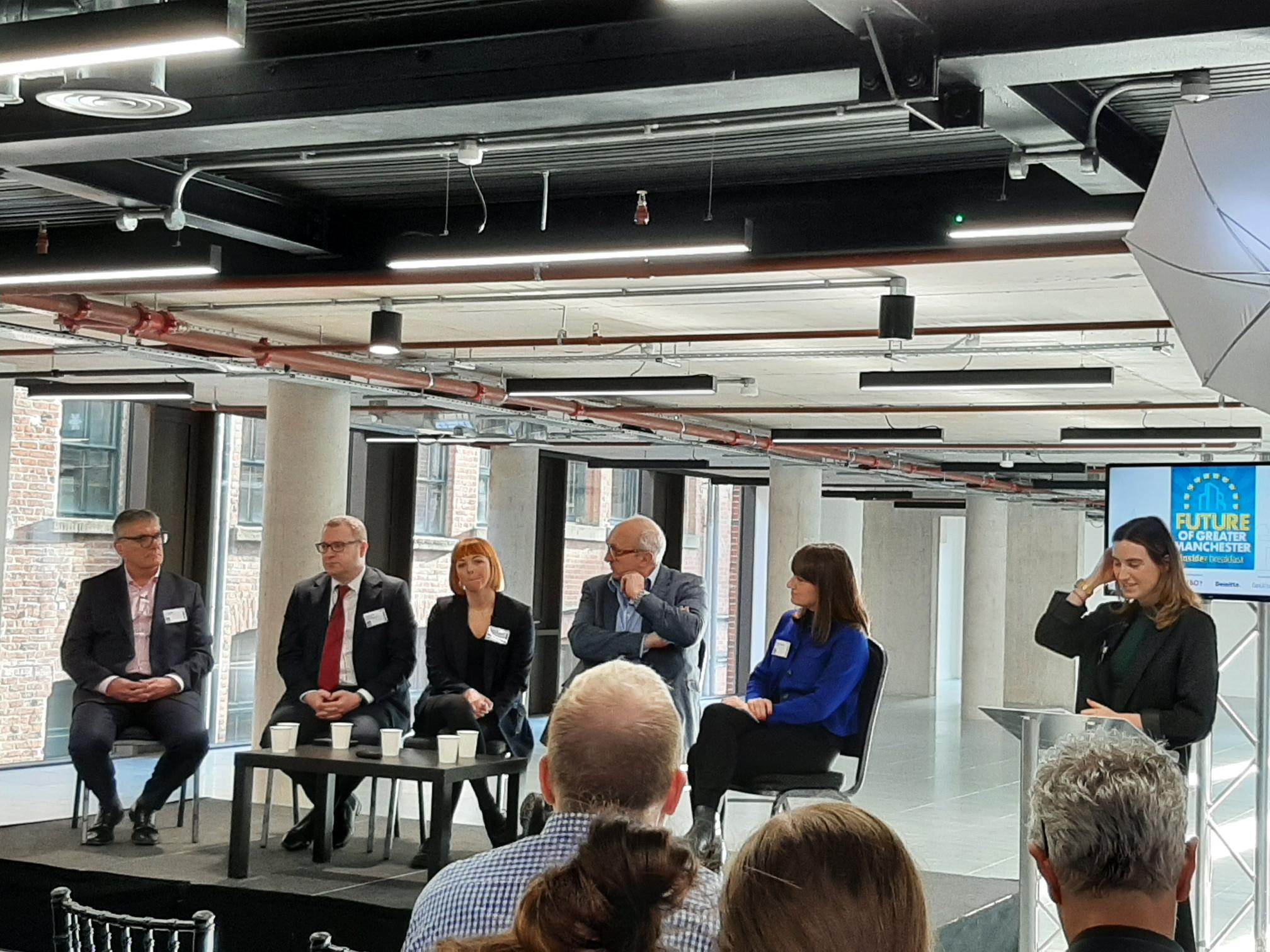Leading voices from across Greater Manchester gathered to discuss the potential of the city-region as part of Insider Media’s Future of Greater Manchester: Insider Breakfast.
As a city-region with a thriving business ecosystem, the event aimed to uncover what Greater Manchester can do to ensure it maintains momentum and grows further in 2023 and beyond.
Focusing on sustainability, connectivity and skills, panellists discussed how Greater Manchester can be a world-class region when it comes to transport, talent, investment and reaching its 2038 net-zero targets.
Opening the event, and giving an overview of Greater Manchester’s progress in each of these key areas was Eamonn Boylan, Chief Executive of Greater Manchester Combined Authority (GMCA).
Claiming that progress in transport, skills and the green agenda through Greater Manchester’s devolved powers were all essential to building a more prosperous city region, Boylan emphasised that the key to all of this is creating a fairer, more inclusive Greater Manchester in the future.
Eamonn Boylan, Chief Executive GMCA said “The fundamental objective of Greater Manchester is economic growth, but it has to be inclusive economic growth. It’s a complex agenda but it’s one we feel is worth the pursuit.”
On the skills agenda, he emphasised ”A key element of the skills agenda is not only looking at it from the employer perspective but from the employee perspective. The big priority that we’ve been pushing is how we build a better, more legible and more accessible vocational skills pathway for young people in the city region.
“I want to make certain that the dialogue with businesses is very direct and immediate to make sure business voices are heard and the skills agenda works around them, rather than trying to retrofit the skills needed afterwards.”
Then joining a panel session to discuss levelling up and these key areas for growth were Amy House, Director of Green Economy, Andrew Wilkinson, Chief Executive Officer, The University of Manchester Innovation Factory, Ian Austin, Managing Partner, Fieldfisher, Tim Newns, Managing Director for Levelling Up, Office for Investment and Melissa Wilson, Assistant Director, Real Assets Advisory, Deloitte.
On levelling up, Tim Newns, Managing Director for Levelling Up at UK Office for Investment says, “Levelling up is about driving up transformative investment. Not a singular investment but one that influences the region around it. Creating the cumulative effect that has ripples.
“The next challenge is to look at the big areas of demand globally on the service side and the industrial side. The country recognises Greater Manchester as having real strengths in AI and biotechnology for example, but how do we translate research into industrial applications or from the research lab into testing to high-value manufacturing?”
On development and skills Melissa Wilson, Assistant Director of Real Assets Advisory at Deloitte said, “This year there are around 57 construction sites in the city centre and Salford, 25 of those are new starts. There are increasing cranes in our towns. That’s a positive story.
“Manchester is and always has been a magnet for talent and we need to make sure we maintain that. Our corporates who have moved to Manchester need to invest in Manchester in the skills and talent space.”
On innovation, Andrew Wilkinson, Chief Executive Officer of The University of Manchester’s Innovation Factory said, “There’s an amazing amount of research that happens at the university of Manchester but it’s just research. It needs our team to turn that research into strategies, identify market opportunities and create spin-out companies.
“Researchers understanding business needs is important as the business needs can turn it into something real and useful for society. The innovation factory acts as a bridge between the business world, the University and the researchers to ensure a smooth transition.
It’s important for us to use innovation and the existing skillets to create a mixed economy. Our opportunity is to demonstrate to the rest of the UK how creating a mixed economy will increase our productivity and create high-value jobs.”
On sustainability and reaching net zero targets, Amy House Director of Green Economy and Bee Net Zero board member said “As innovation strives on, technology becomes more efficient, more affordable and easier to implement. The real innovation we need to talk about with businesses is getting them to change the way they do things and that behavioural change. We will never meet our climate targets unless we change our behaviours.
“Bee Net Zero is working to ensure that Greater Manchester is the easiest place for businesses to become net zero by offering them support, and guidance while connecting them with green tech.
“We know Greater Manchester is leading the way in so many areas but what I would like to see it lead the way in is helping businesses to be braver and making change happen quicker.”
The panel concluded that the future of Greater Manchester is looking positive, but bold steps need to be taken to truly level up and create a more sustainable, equal and prosperous city region.
While all speakers agreed that Greater Manchester has the talent, assets and infrastructure in place to create a city-region of the future, they also agreed that maximising homegrown talent and making the most of devolved powers to succeed.

